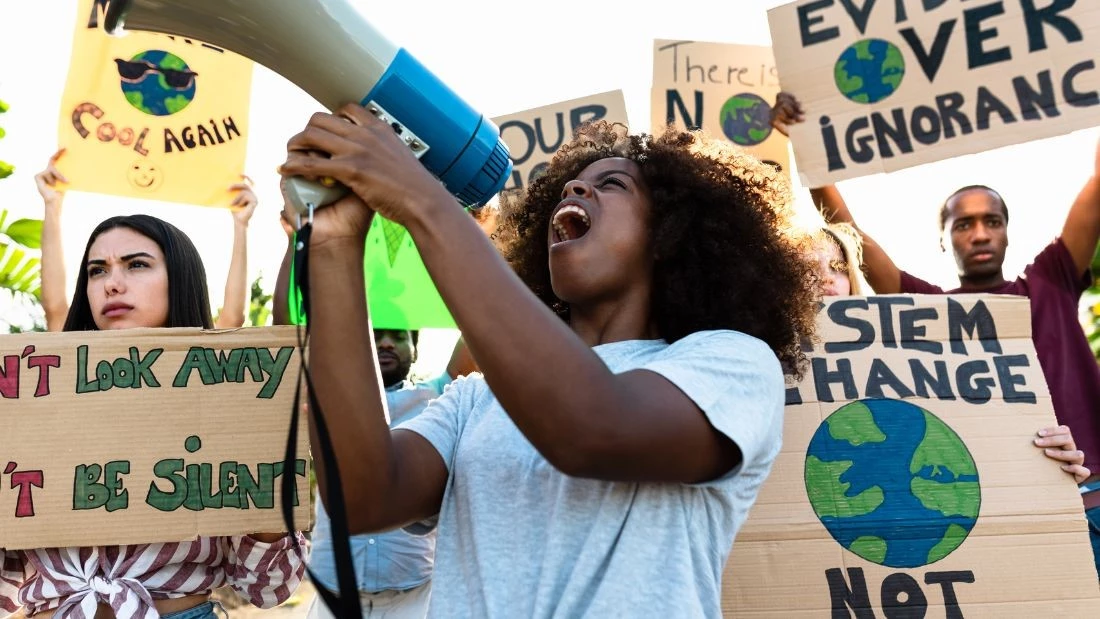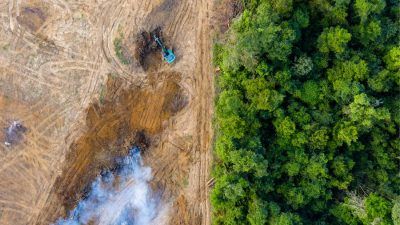Global heating is happening now – what can you do about it?

Two new studies describe how global heating is increasing and another suggests that universities should lead the way in calling for change.
Global heating – breaching 1.5°C likely by 2027
Scientists at the World Meteorological Organisation (WMO) say there’s now a 66 per cent chance we will pass the 1.5°C global heating threshold between now and 2027. This will be fuelled by heat-trapping greenhouse gases and a naturally occurring El Niño climate event expected to bring warmer, wetter weather to the eastern Pacific region later this year. “This report does not mean that we will permanently exceed the 1.5°C level specified in the Paris Agreement which refers to long-term warming over many years. However, WMO is sounding the alarm that we will breach the 1.5°C level on a temporary basis with increasing frequency” said WMO Secretary-General Prof. Petteri Taalas. He added: “This will have far-reaching repercussions for health, food security, water management and the environment. We need to be prepared”.
The ocean is warming and is now hotter than ever
The global ocean hit a new record temperature of 21.1°C in early April 2023, 0.1°C higher than the last record high in March 2016 and ahead of the El Niño climate event expected later this year. This could mean a marine heatwave which would spell disaster for all marine life. Hotter ocean temperatures bring whales closer to shore in search for food increasing the risk of getting caught in fishing gear. Harmful algal blooms take the oxygen out of the water leading to dead zones and corals bleach with many of them dying. Marine heatwaves can also trigger extreme weather, such as cyclones. This ocean temperature spike, probably the highest in more than 100,000 years, coincides with other warming trends. “This wouldn’t have happened without climate change” tweeted Jens Terhaar, an ocean biogeochemical modeller at the Woods Hole Oceanographic Institution in Massachusetts, in response to the news. He said: “We are in a new climate state, extremes are the new normal.”
Universities should lead the way in going plant-based to save the planet
Reducing how much meat and dairy we eat is vital for achieving climate targets as the Intergovernmental Panel on Climate Change and the EAT-Lancet Commission have repeatedly pointed out. Universities have a large influence in how we prepare for the future, according to this study, so should take a lead on changing our diets, after all, much of the climate research comes from universities.
According to the authors, universities should provide affordable, satisfying and healthy plant-based options daily and provide students and staff with information about what they eat (eg food literacy interventions and impact scorecards for dishes). Other measures might include reducing the animal-based component of dishes and price incentives. They suggest aiming for at least halving the amount of animal-based food consumed in canteens within the next three years. Of course, the best solution would be for everyone to go Vegan Now!
Find out more about our environmental campaigns here.
References
- WMO. 2023. Global temperatures set to reach new records in next five years. https://public.wmo.int/en/media/press-release/global-temperatures-set-reach-new-records-next-five-yearsKrattenmacher J, Casal P, Dutkiewicz J et al. 2023. Universities should lead on the plant-based dietary transition. Lancet Planetary Health. 7 (5) e354-e355.
- Jones N. 2023. The ocean is hotter than ever: what happens next? Nature. 617 (7961) 450.
- Krattenmacher J, Casal P, Dutkiewicz J et al. 2023. Universities should lead on the plant-based dietary transition. Lancet Planetary Health. 7 (5) e354-e355.







